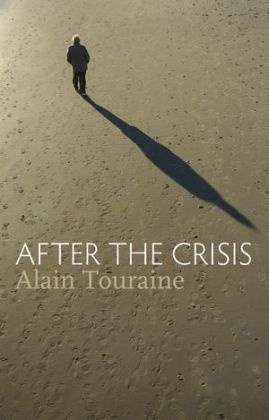Read more
Today we hear much talk of crisis and comparisons are often made with the Great Depression of the 1930s, but there is a crucial difference that sets our current malaise apart from the 1930s: today we no longer trust in the capacity of the state to resolve the crisis and to chart a new way forward.
List of contents
Acknowledgements
Introduction
Part One: Crises in context
Chapter 1: Beyond the industrial society
Chapter 2: The crisis of capitalist society
Chapter 3: The crisis situation
Chapter 4: The breakdown of society
Chapter 5: Profit versus rights
Part two: A possible society
Chapter 6: The hypothesis
Chapter 7: The post-social situation
Chapter 8: The emergence of non-social actors
Chapter 9: New social and political institutions
Conclusions
Summary
Bibliography
About the author
Alain Touraine is Research Director at the École des Hautes Études en Sciences Sociales, Paris.
Summary
What effects will the current economic crisis have on the long-term development of our societies? What does the future hold in store when we emerge from the crisis? These two questions lie at the heart of this important new book by the leading French sociologist Alain Touraine.
Report
"This book is the most insightful sociological analysis of the meaning and impacts of the economic crisis by one of the leading social theorists in the world. It explains why this is a societal crisis that affects the life of everybody, including you."
Manuel Castells, University of Southern California
''Long after other masters of French social theory have passed from the scene, Alain Touraine continues, with clarity and brilliance, to challenge how we think about our worlds. After the Crisis examines the world economic crisis of 2008 to conclude that our future requires not just new economic measures but the deepest possible rethinking of society itself. Academics, policy makers, and all others serious about the current global situation absolutely must read this book.''
Charles Lemert, Center for Comparative Research, Yale

